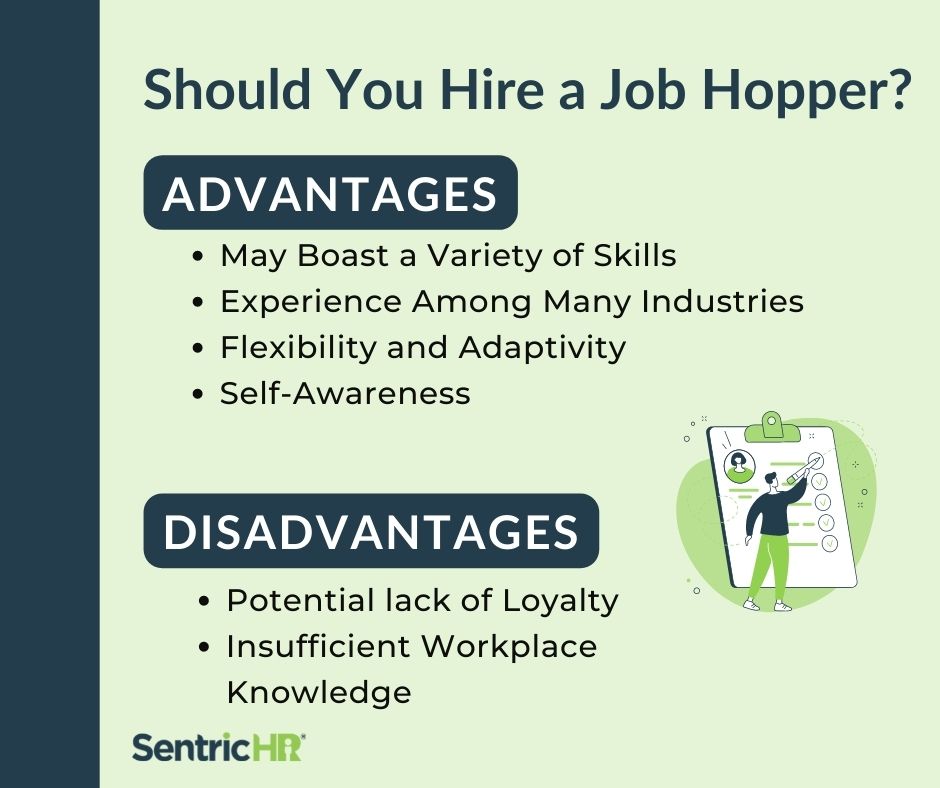Key Points:
- Job hopping is defined as staying with one employer for 1-2 years before moving to another employer for other opportunities.
- Millennials make up the largest generation in America, followed by Gen Z, and together they are quickly transforming the negative mindset surrounding job hopping.
- It is important for hiring managers to know what questions to ask to avoid those who can’t hold onto a job for reasons other than career growth.
In the past, hiring managers would immediately disregard a resume featuring several short job experiences. A job hopper is someone who stays with an employer for 1-2 years before moving to another employer for other opportunities, and it was ultimately frowned upon before 2022. But millennials are leading the way in creating a workforce that is more concerned with job gratification over permanent careers and pensions.
The reputation of job hopping has changed, though in some industries it remains uncommon. So as a hiring manager, how should you approach a job hopper in the recruiting process? In this post we go over the advantages and disadvantages of hiring a job hopper, as well as ways you can avoid hiring an unreliable employee.
What Does Job Hopping Say About a Candidate?
Job hoppers can be seen as unreliable, lacking work ethic, and unloyal. Millennials make up the largest generation in America, followed by Gen Z, and together they are quickly transforming this negative mindset. Studies have shown that millennials want the same things from their job that every other generation wants, including:
- Growth and learning opportunities
- Sense of purpose
- Competitive compensation
The difference is that millennials are less likely to sit around and wait for it, so they often opt to change jobs until they find what they are looking for. Understanding this information, hiring managers are beginning to consider job hoppers more frequently.
Advantages of Hiring a Job Hopper
Variety of Skills
By working multiple different jobs, a job hopper is likely to harbor a variety of skills that a typical job applicant would not yet have. This could benefit the organization in a few different ways, such as possibly requiring less training for that employee. Bringing in someone with a wide skill set also offers potential for that employee to be a great person to train others.
Experience Among Many Industries
Someone who has worked multiple jobs is able to bring experience from working in small and large organizations, having faced different challenges that come with each setting. Introducing an employee to your organization with that level of experience will offer fresh perspectives as well as insight to how other companies may be approaching certain issues.
Flexibility, Adaptivity, and Self-Awareness
Switching job positions in two years or less requires loads of flexibility. One must be able to quickly adapt to different job positions. This also comes with great self-awareness, knowing what they are looking for in a job position, what projects they do best on, and what they need to improve.
Disadvantages of Hiring a Job Hopper
Lack of Loyalty
The most obvious disadvantage of hiring a job hopper is the chance that they are going to hop again in a year or two. It would greatly benefit an organization to hire a loyal employee rather than take a chance on a job hopper in this case. Refilling positions comes with many different costs associated like recruiting and onboarding costs.
Insufficient Knowledge
Someone who often changes employers can lack a deeper understanding of many processes in the workplace. Being that they typically spend 2 years or less at a job shows that, in some cases, they just made it past onboarding before they left, meaning that they were still in the very early stages of their career.
How to Make the Best Hiring Decisions
Although the negative mindset centered around job hopping is shifting, it is still important for hiring managers to know what questions to ask to avoid those who can’t hold onto a job for reasons other than career growth. The following are some things to keep in mind before hiring a job hopper:
- Reasons for job hopping
- Gaps in employment
- Ultimate career goals
- Require and check references
Looking to streamline your HR processes with one HRIS that does it all? Learn how you can manage recruiting, hiring, and everything in between with our talent management software!









